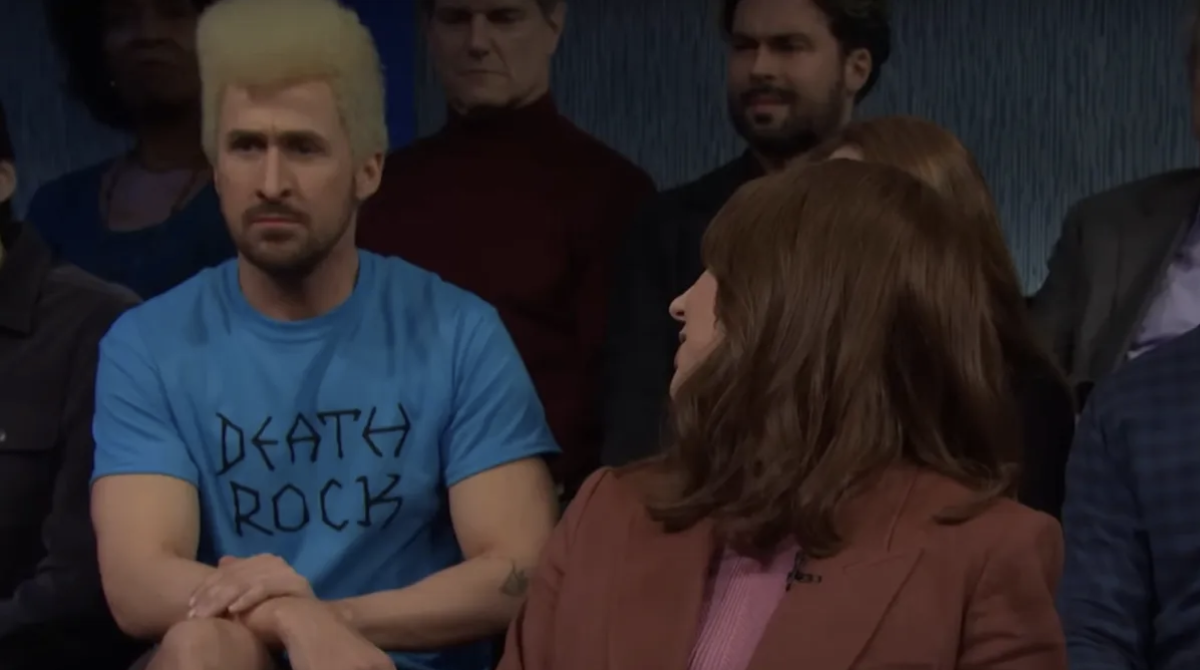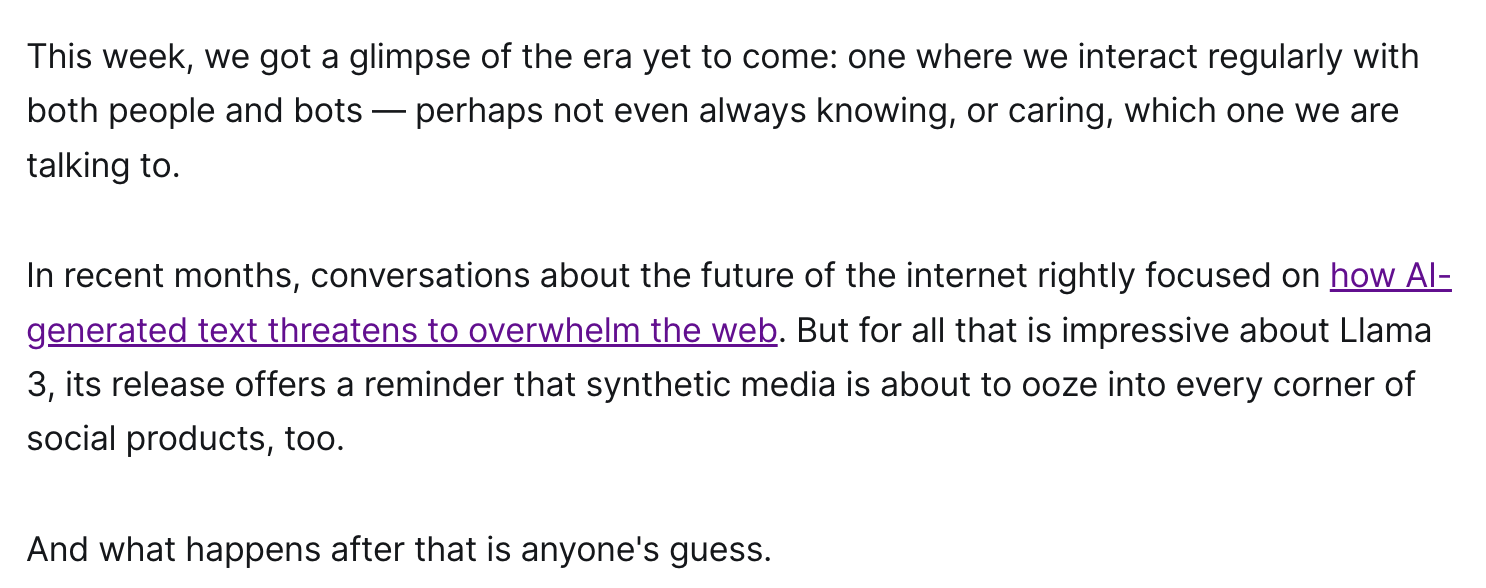Ryan Gosling Is The Antidote To An Artificial Intelligence Hellscape
Last week a Saturday Night Live skit broke the internet. I’ve seen it referred to as viral, and also “generational.” I cracked up watching it and asked my partner to rewind it so I could watch it again. And again. One news article referred to it as “the Best SNL skit ever.”
The skit doesn’t hold up to deeper analysis, though: Kenan Thompson is good in the way he’s always the perfect straight-man foil, but it’s not his best performance. There are no catchphrases or one-liners to take away from this. The joke itself - that there are two guys who are unaware that they look like Beavis and Butt-Head - isn’t even that clever. The “King of the Hill” closer to the scene was weak, and felt tacked on.
What I think we all collectively connected with was the absolute humanity of the cast: Ryan Gosling was barely able to contain himself. Heidi Gardner was not able to contain herself.
It was bizarre and surreal, and unpolished and perfect for all of those reasons, in the face of the machine-generated nonsense that is slickly taking over the web.
The popularity of Nanalan clips on Instagram and TikTok was an earlier sign of this (you’ve probably heard the “Most Beautiful Girl” song). After so much sameness, so much artificial voiceover content, I think we craved something more real. And the show’s creator says it perfectly, in an interview they did with the New York Times a few months ago:
“The world is so, so difficult and scary right now, and the show’s very comforting. Everything looks soft. There’s no special effects. It heralds to what I think people want to see, which is just something that’s real and authentic in the, you know, fake, fake, fake world. Everything’s A.I., and people don’t know what’s real.”
Similarly, Harold Halibut is being heralded as the the next big game, partially due to it’s bizarre but touching story, but also because the entire game was created using stop-motion puppets. That’s an artistic choice, and it’s one that matters when all AAA game titles look the same. The top comment on that nailed it when they said that the world’s main gaming studios have become “too big to innovate.” They’re the same sum of average that AI is.
It’s not that I don’t think Generative AI can write comedy scripts today or in the future. Or design shoes or video games. Or that the pursuit of better Generative AI (and the General AI to follow it) is a useless or dangerous path to follow.
It’s not a giant leap to say that over the next several years almost everything we interact with will be part of AI, will be AI-generated, or will have AI baked into it in some way. Immersive worlds virtual worlds, meetings, and generated experiences will be commonplace. We’re on the verge of being absolutely overrun by garbage content produced at scale.
And it’s not just content: Casey Newton suggests that if the first wave of social media was about interacting with people you knew and that the second wave was about interacting with celebrities and influencers (people you didn’t know), the third wave was going to be people who don’t exist: Virtual avatars, Chatbot replicas of celebrities. Virtual Snoop Dogg.
And my guess is that what happens next is that the more we’re pushed, pulled, and dragged into a machine-generated world, the more parts of us will reject it. As the saying goes, “For every action, there is an equal and opposite reaction.”
The AI conclusion we’re racing to is soulless and lonely.
And the antidote to all of those things is to embrace the handmade. The improv-ed. The in-person and imperfect.
We’ll see a return to theatre (Vancouver’s Bard on the Beach Shakespeare Festival has seen growing crowds, and I expect them to be even bigger this year) , and we’ll see live music become even more in-demand. After more days of Zoom and headsets and artificiality, we’ll spend more time craving an afternoon on a picnic blanket on the grass or on the beach.
It was fitting that the setting for the Beavis and Butt-Head SNL skit was a news program talking, in as dry of terms as possible, about the future of AI.



